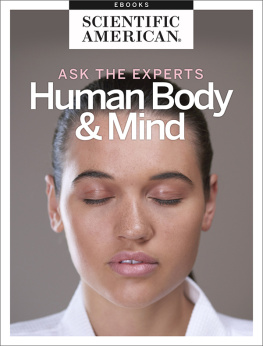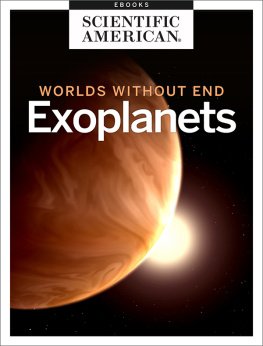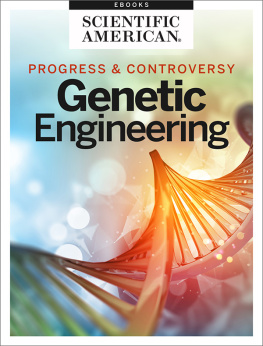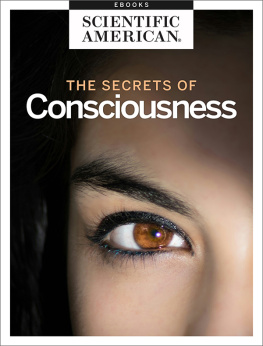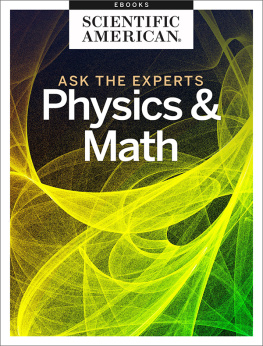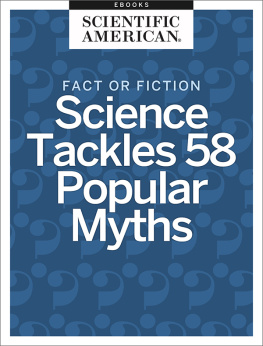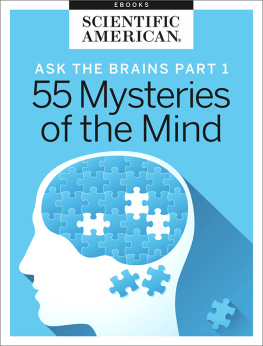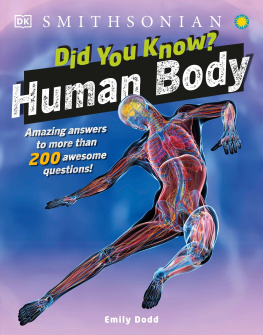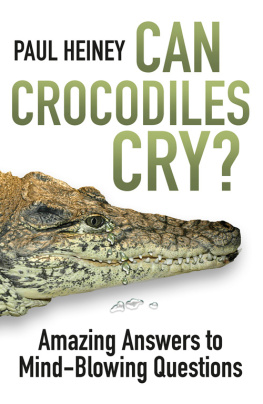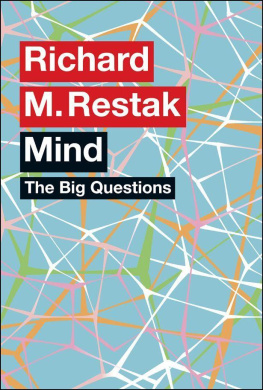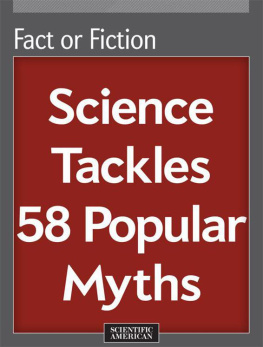Ask the Experts
The Human Body and Mind
From the Editors of Scientific American
Image Credit: Jonathan Storey/Getty Images
Letters to the Editor
Scientific American
One New York Plaza
Suite 4500
New York, NY 10004-1562
or editors@sciam.com
Copyright 2017 Scientific American, a division of Nature America, Inc.
Scientific American is a registered trademark of Nature America, Inc.
All rights reserved.
Published by Scientific American
www.scientificamerican.com
ISBN: 978-1-4668-5897-8
Scientific American and Scientific American MIND are trademarks of Scientific American, Inc.,
used with permission.


ASK THE EXPERTS
The Human Body and Mind
From the Editors of Scientific American
Table of Contents
Introduction
by Geoffrey Giller
Section 1
1.1
by Michael J. Dougherty
1.2
by Michael J. Dougherty
1.3
by Stuart E. Ravnik
1.4
by M.K. Holder
1.5
by Mark Pagel
1.6
by Paul Grobstein
1.7
by Bernhard Haubold
1.8
by William R. Clark
1.9
by Anthony Stocks and Frank McAndrew
1.10
by Michael McCullough and Katherine Harmon Courage
1.11
by Loren G. Martin
1.12
by Harvey G. Klein
1.13
by Jon Seger
Section 2
2.1
by Loren G. Martin
2.2
by Mark A.W. Andrews
2.3
by Laurence Meyer
2.4
by Rhoda S. Narins
2.5
by Glenn Langenburg
2.6
by William A. Whitelaw
2.7
by Lynn A. D'Andrea
2.8
by Barry Green
2.9
by Kevin Harris and Larry Greenemeier
2.10
by Mark A.W. Andrews
2.11
by William K. Purves
2.12
by Jeffery W. Walker
2.13
by Raymond Brodeur
2.14
by Mark A.W. Andrews
2.15
by Douglas E. Vetter
2.16
by George Cotsarelis
2.17
by Mark A.W. Andrews
2.18
by James B. Snow, Jr.
2.19
by Suzan Obagi
2.20
by Peter Pressman and Roger Clemens
2.21
by George A. Bubenik
2.22
by Sant P. Singh
2.23
by Randall K. Packer
2.24
by J. Christian Gillin
2.25
by Albert O. Edwards
2.26
by Fred Best and George M. Pantalos
2.27
by Neal J. Smatresk
2.28
by Susan J. Gross
2.29
by Nick Martin and Grant Montgomery
2.30
by Raymond Boissy
Section 3
3.1
by C. Randy Gallistel and Patricia Sharp
3.2
by Timothy E. Hullar
3.3
by Barry L. Beyerstein
3.4
by Dierdre Barrett and Jordan Lite
3.5
by Marco Iacoboni and Larry Greenemeier
3.6
by Tim Jacob
3.7
by Donald Wilson
3.8
by Alison Preston
3.9
by Gary Marcus and Gary Stix
3.10
by Laurence Steinberg and Charles Q. Choi
3.11
by Ann Bigelow and Katherine Harmon Courage
3.12
by Steven Neuberg and Sophie Bushwick
3.13
by Lloyd Minor and Larry Greenemeier
3.14
by Henry Olders
Have You Ever Wondered
Humans are innately curious.
From a young age, we start to ask questions about the world around us. We want to understand why things are they way they are. But even the most simplistic-sounding questions Why is the sky blue? or Why do things fall down? turn out to have surprisingly complex answers. (In brief, light scattering by the atmosphere and gravity are the answers to those questions, though of course the technical answers are much more in-depth).
If simple questions have such relatively complex answers, then the more sophisticated questions that arise as we get older must also have more complicated answers. For those more difficult problems, we must often turn to experts. Scientific Americans Ask the Experts column has been doing just that for years. Across all fields of science, Scientific American has asked top scientists, professors and researchers to answer questions from the basic to the esoteric. Many questions came from readers; others came from our editors. Some questions relate to recent events, while others have to do with long-standing theories; some affect our daily lives, while others are for the pure pursuit of knowledge.
A popular department that ran for going on two decades, the hundreds of entries in our archives run the gamut across subjects from health to the environment to technology. Now, weve combed through those archives and have compiled some of the most interesting questions (and answers) into a series of eBooks. Organized by subject, each eBook within the series provides short, easily digestible answers to questions on that particular branch of the sciences.
In this installment, The Human Body and Mind, we tackle questions about our own strange and mysterious biology. [Editors Note: Due to the sheer volume of questions, Ask the Experts: Health and Medicine is being treated as a separate eBook.] We begin with how the human body came to be as we know it today in Section 1, Evolution: Being Human. Our experts answer both broad questions on the nature of genetics and evolutionary theory, such as How Are Traits Passed on Through DNA? and How Closely Related Are Humans to Apes? How Do Scientists Measure Evolutionary History?, as well as more granular queries like Why Are More People Right-Handed than Left-Handed? and Why Do People Have Different Blood Types?
Section 2 covers Biology: Quirks of the Body, and there are many. Are you curious about what causes the sound when we crack our knuckles? Or what causes hiccups? How about why our stomachs growl when were hungry, or why digestive acids dont corrode our own stomachs? In Section 3, Psychology: Feats of the Mind, we dive into how the brain works. What causes insomnia? How can we control our dreams? Do we really only use 10% of our brains? Professors, scientists and biologists provide answers that are at once accurate, understandable and sometimes just plain funny.
Searching for answers to questions on Astronomy? The Environment? Chemistry? Or Everyday Science? Be sure to check out our other eBooks in this series. Youll discover things like what makes a knuckleball flutter, why the Big Bang didnt collapse into a black hole, why snowflakes are symmetrical and much more.
--Geoffrey Giller
SECTION 1
Evolution: Being Human
Is the Human Race Evolving or Devolving?
Michael J. Dougherty, assistant director and seniorstaff biologist at Biological Sciences Curriculum Study in ColoradoSprings, Colo., offers his opinion:
From a biological perspective, there is no such thing as devolution. All changes in thegene frequencies of populations and quite often in the traits those genesinfluence are by definition evolutionary changes. The notion that humans mightregress or "devolve" presumes that there is a preferred hierarchy of structure andfunction say, that legs with feet are better than legs with hooves or that breathingwith lungs is better than breathing with gills. But for the organisms possessing thosestructures, each is a useful adaptation.
Nonetheless, many people evaluate nonhuman organisms according to humananatomy and physiology and mistakenly conclude that humans are the ultimateproduct, even goal, of evolution. That attitude probably stems from the tendency ofhumans to think anthropocentrically, but the scholarship of natural theology, whichwas prominent in 18th-and 19th-century England, codified it even before Lamarckdefined biology in the modern sense. Unfortunately, anthropocentric thinking is atthe root of many common misconceptions in biology.

